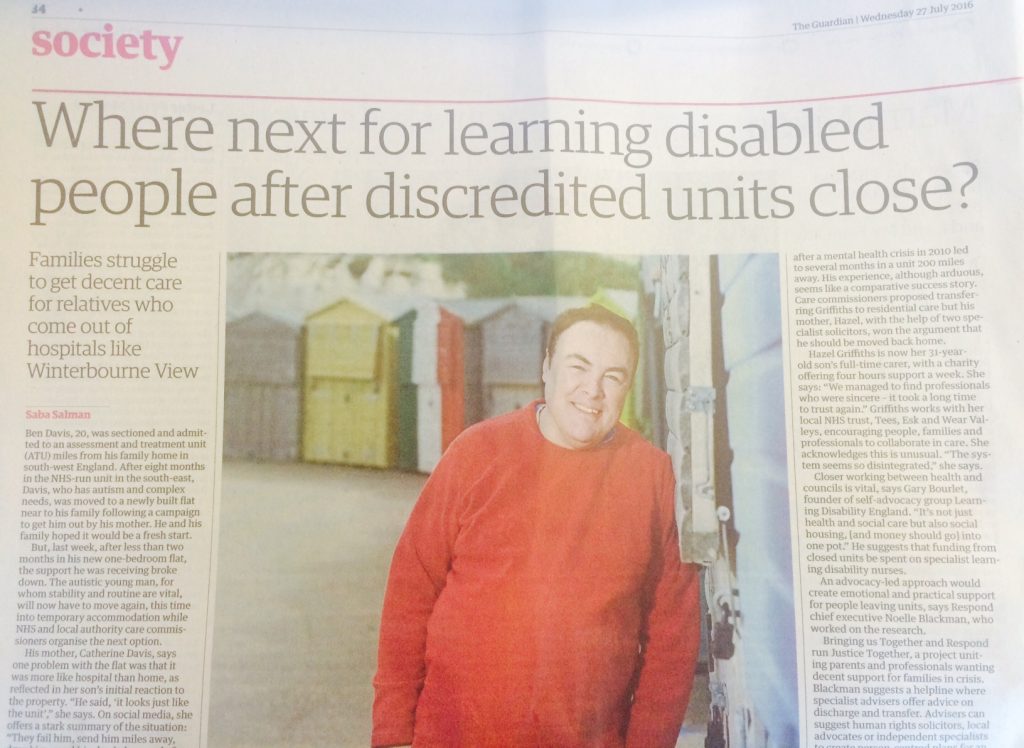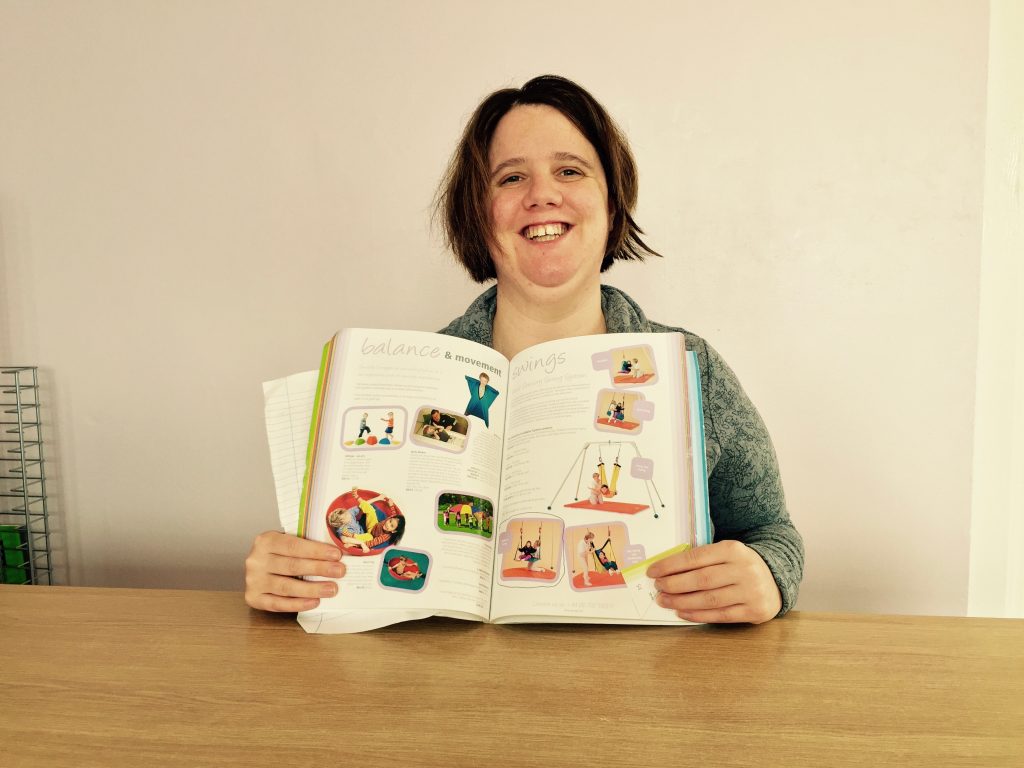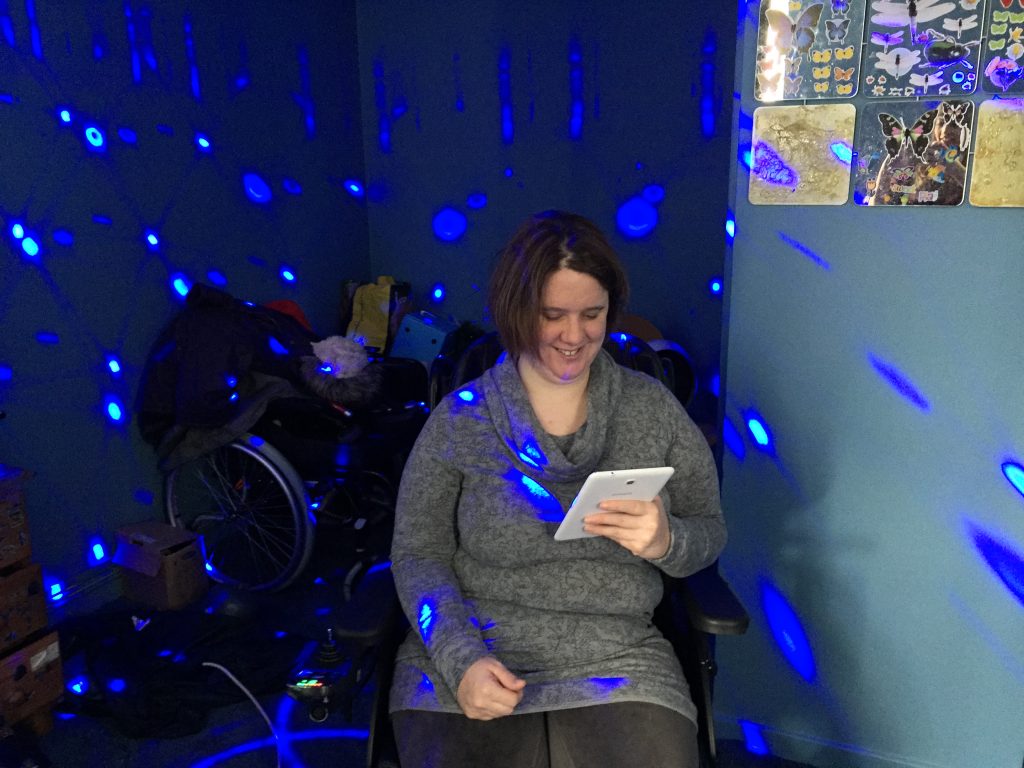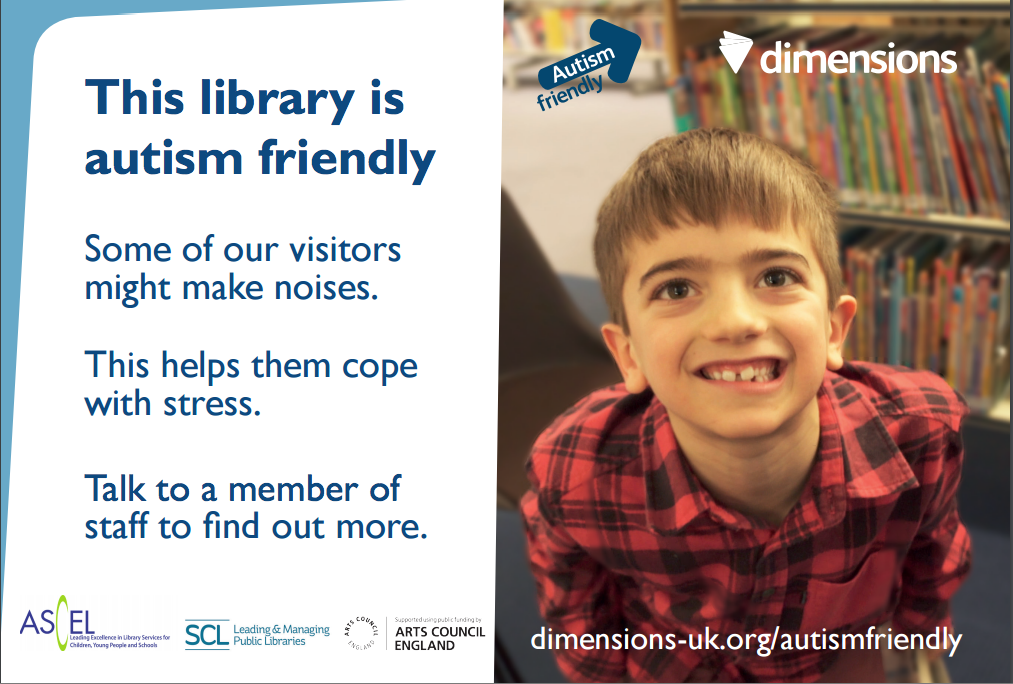
The government promised four years ago to move people from treatment and assessment units following BBC Panorama’s exposure of abuse at the privately run Winterbourne View.
The preventable death of 18-year-old Connor Sparrowhawk, who drowned in a Southern Health trust unit in Oxfordshire three years ago, and the subsequent Justice for LB campaign, further fuelled demands for action and accountability over the treatment of learning disabled people. In October, NHS England and council leaders set out a £45m plan to close England’s last NHS hospital for people with learning disabilities, plus up to half the 2,600 beds in the units.
But according to the latest figures, in June more than 2,500 people were still languishing in such units as the pace of change is so slow.
My piece in the Guardian today focuses on what happens to people as they are moved out of these secure hospital facilities and back “home” – “into the community”.
Some, like Ben Davis, who has autism and complex needs, are passed from pillar to post as suitable local support just doesn’t exist. Family-led research published today by charities Bringing Us Together and Respond highlights the problems for people like Ben.
Ben was admitted to an assessment and treatment unit (ATU) miles from his home after his first supported living placement broke down. After the ATU, he moved to a newly built flat nearer his family but that support has now also broken down. He has to move again, into temporary accommodation, while care commissioners organise the next option.
When I interviewed Ben’s mother, Catherine, she was both eloquent and outspoken as she described how the human rights of her son were being eroded after he was repeatedly failed by the very system designed to support him.
This is where we are today. Upwards of 2,500 people stuck in inappropriate, discredited care, and the strong will to get them out is being undermined by the lack of a clear way.
And meanwhile, many parents – every single one of whom has spent years relentlessly fighting for the right support – feel they cannot always openly challenge the authorities, such is the fragile and often hostile relationship between families and commissioners of care.
* Names and details in the article have been changed
* Read the full Guardian piece here and the check this for reports by Bringing Us Together and Respond on which the article is based




